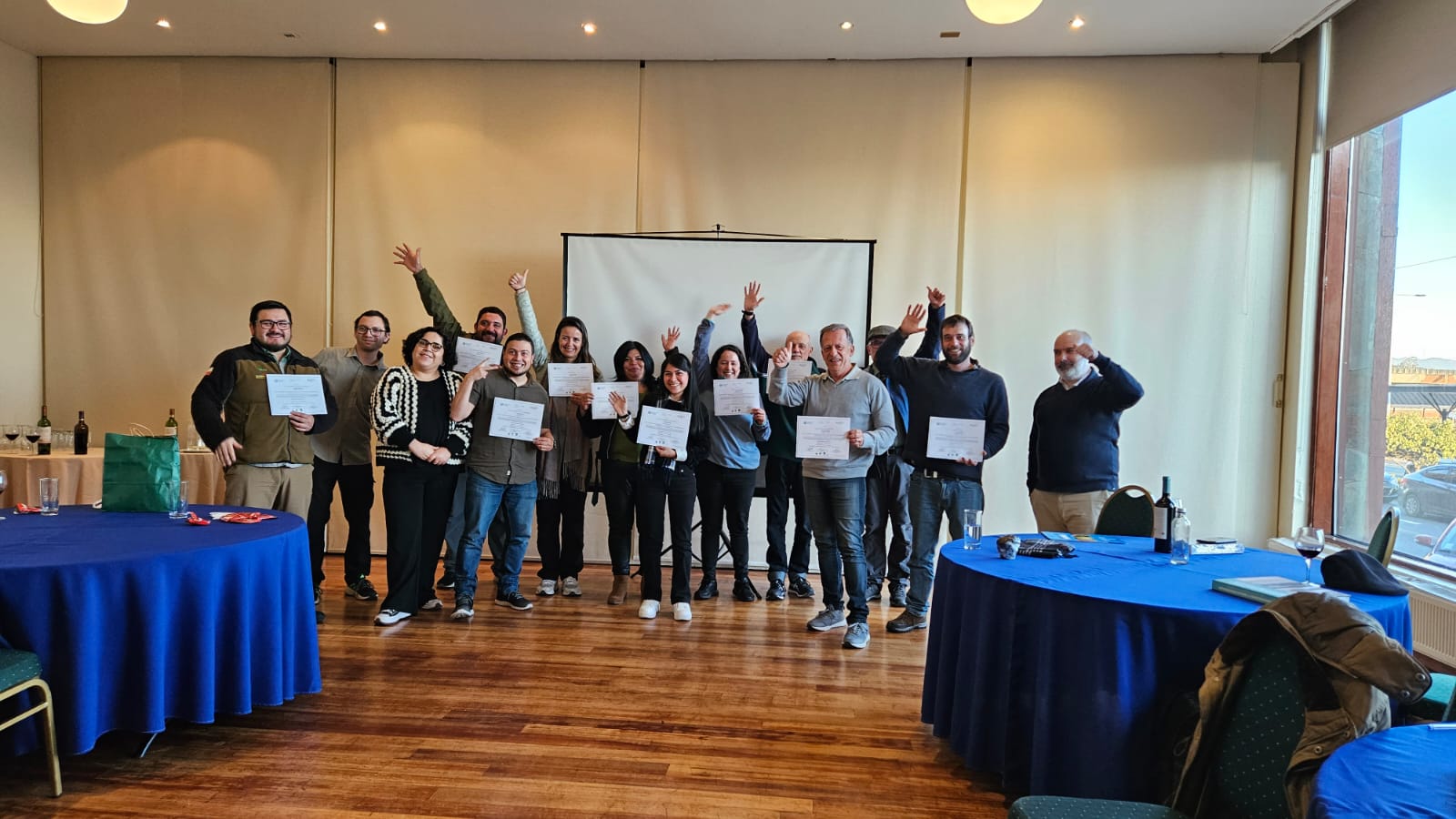
The course has had the participation of some thirty professionals linked to the management of marine protected areas from eleven countries of the Southern Cone, some of them participating in the classroom module whose field activities and presentations are being developed these days in the city of Puerto Montt and in the commune of Calbuco.
“Having trained managers is a basic aspect to achieve effective management of MPAs so that they fulfill the conservation objective for which they were created. However, at the Latin American level, and in key places such as Patagonia, capacity building is an important gap, which we hope this course can help to fill. Advancing in this is not only critical for the region and its communities, but also contributes to the achievement of the global biodiversity target for 2030, to which we have been committed as the founding NGO of this initiative, since the first courses and workshops, in the context of the so-called MPA School,” said María Elisa Arroyo, representative of the Forum for the Conservation of the Patagonian Sea and Areas of Influence and coordinator of Protected Areas and Communities of WWF Chile.
In addition, Stanley Aguedas, academic and general coordinator of the course said: “This field is a very important component of the course, because here we learn to apply the theoretical knowledge of management in protected areas. We expect to create a critical mass of professionals with technical knowledge, who can point out to the institution they represent the problems that hinder participatory and equitable management, the origin of these problems and possible solutions. We are training agents of change, that is the expectation”.
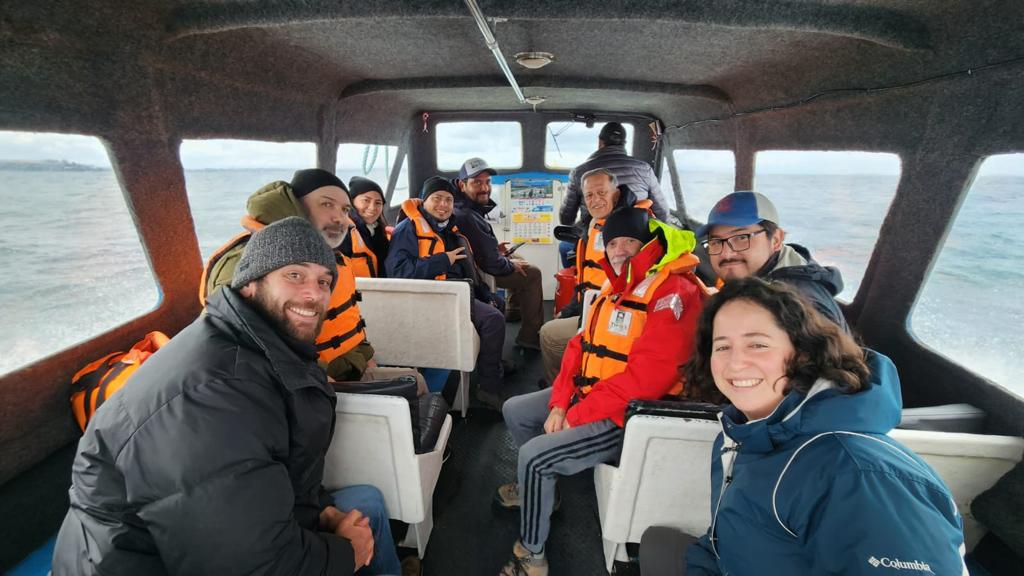
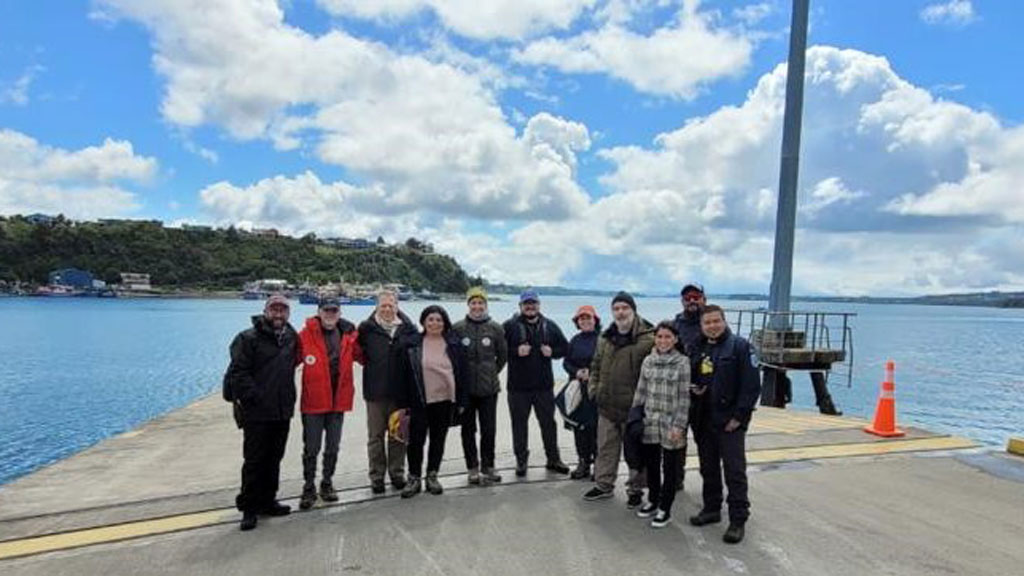
During the four days of field work in the Los Lagos Region, participants will be putting into practice the theoretical knowledge learned during the previous three months, with field work that includes a visit to Lagartija Island, or Caicué: a Nature Sanctuary located off the coast of Calbuco, which is home to more than twenty species of birds, some of which nest there.
“This course has been very interesting, with a high level of learning, very good teachers and, in addition, with an important exchange of information between managers of protected areas in the Southern Cone. I hope to continue learning. In this job you learn things every day, especially when it has to do with working with local communities, participation and management. It is also a job that has been here in the country for a short time, so what better than interacting with colleagues from other countries,” said Erick Burgos, regional manager of the Conservation and Biodiversity Unit for Sernapesca in the Atacama Region.
Pablo Martínez, a professional from the Northern Patagonia Regional Directorate of the National Parks Administration of Argentina, said that he had participated: ”In the first, third and fourth courses of the Forum, all of which were very interesting because they provide elements for the practical and daily application necessary in any Marine Protected Area management, especially in the 21st century when the actors linked to protected areas cannot be left aside. It is no longer possible to think of management from the top down, but rather to involve all stakeholders”.
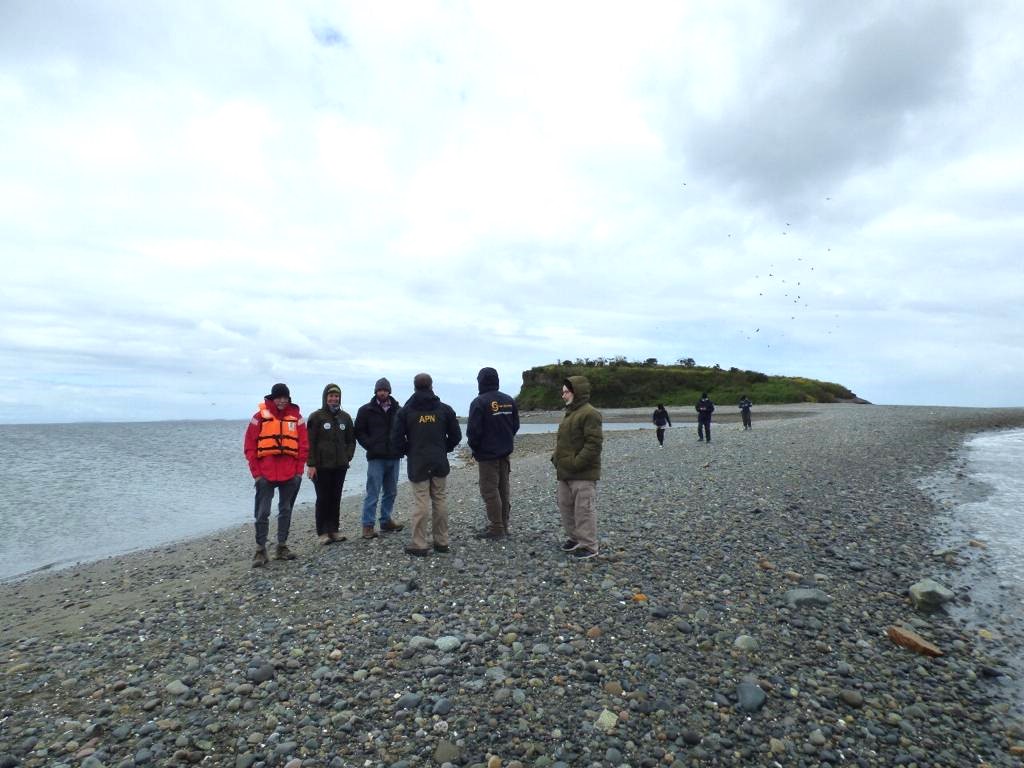
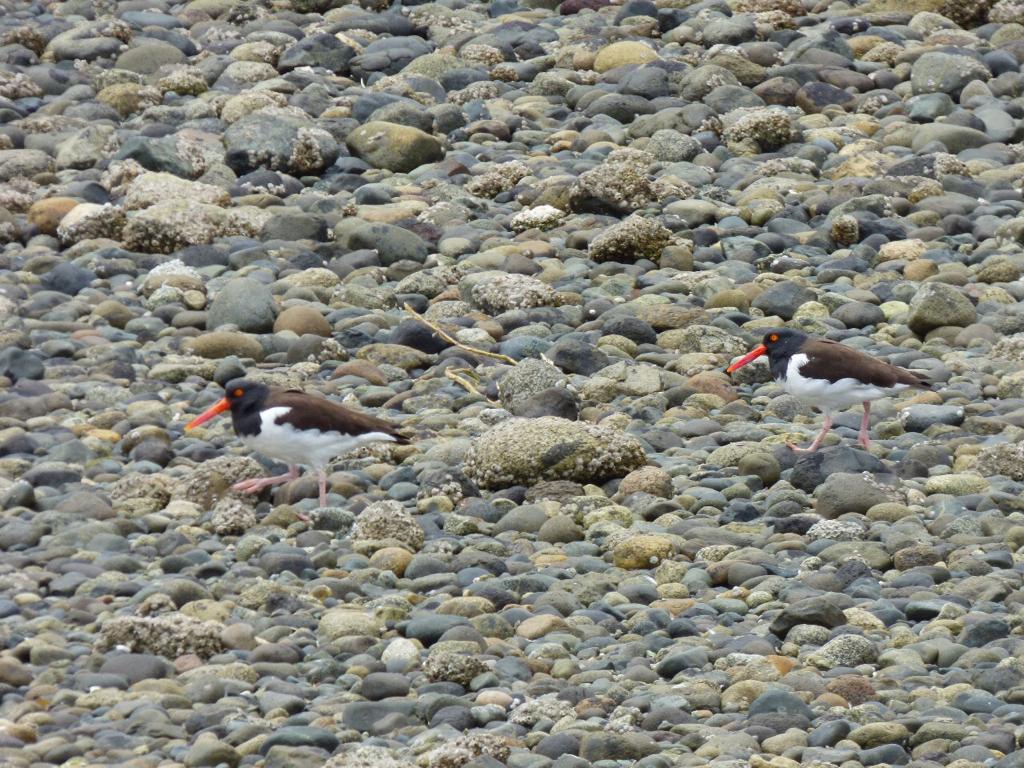
Kellen Leite, a protected areas manager from Brazil, said that: “The course has been very interesting for obtaining tools that I can apply in the management of the areas in which I am working, it has clarified a lot in terms of the management context”.
César Guala, director of the Austral Patagonia Program at Universidad Austral de Chile, said that: “As a university, we are happy to participate in this initiative, to which over 100 people initially applied, which shows the relevance and demand for this topic. We thank the organizations of the Forum for the opportunity they gave us to be part of this tremendous course and the challenge of addressing the management of marine protected areas from the Academy of Protected Areas and Communities”.
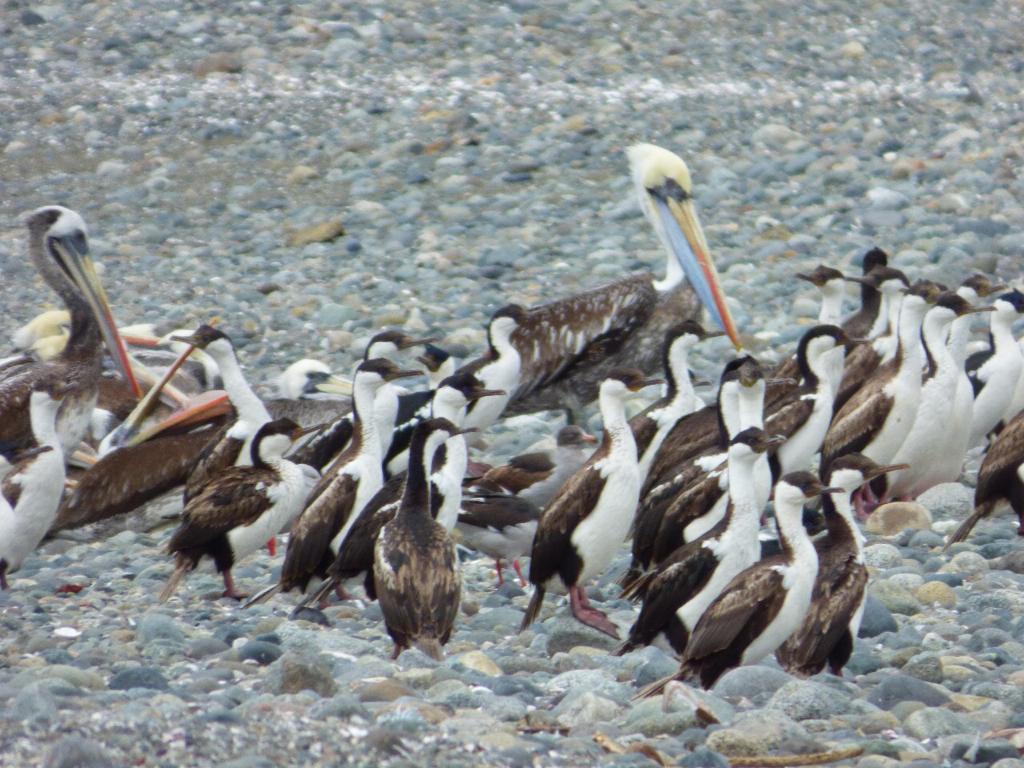
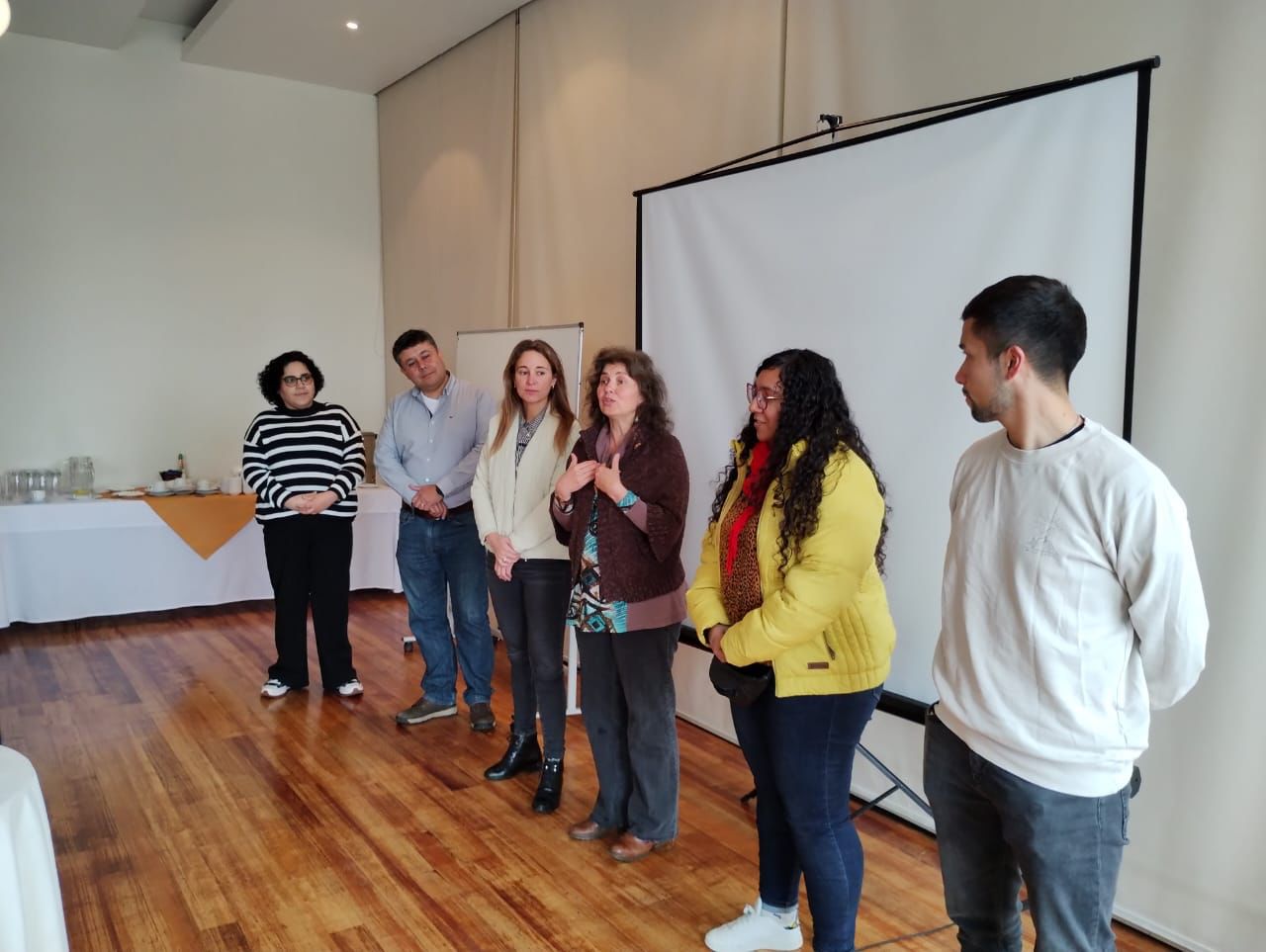
It is important to remember that MPAs are natural spaces intended to protect ecosystems, communities, species, or geological elements. There are different categories of MPAs, ranging from marine reserves or parks with strict protection, to protected areas with multiple uses regulated by a management plan that defines and orders the development of various uses. In all cases, it is essential to have managers trained in the implementation of participatory and equitable governance to ensure the conservation of the areas over time.
This course is part of the School for the Management of Marine Protected Areas of the Southern Cone (EAMP), a regional collaborative initiative promoted by the following organizations of the Forum for the Conservation of the Patagonian Sea and Areas of Influence: WWF Chile, WCS Chile, FVS Argentina and PEW, with the support of the Blue Nature Alliance (BNA).
Its execution is possible thanks to an alliance between the EAMP and the Academy of Protected Areas and Communities of the Austral Patagonia Program (Universidad Austral de Chile), and the Center for Continuing Education of the UACh.